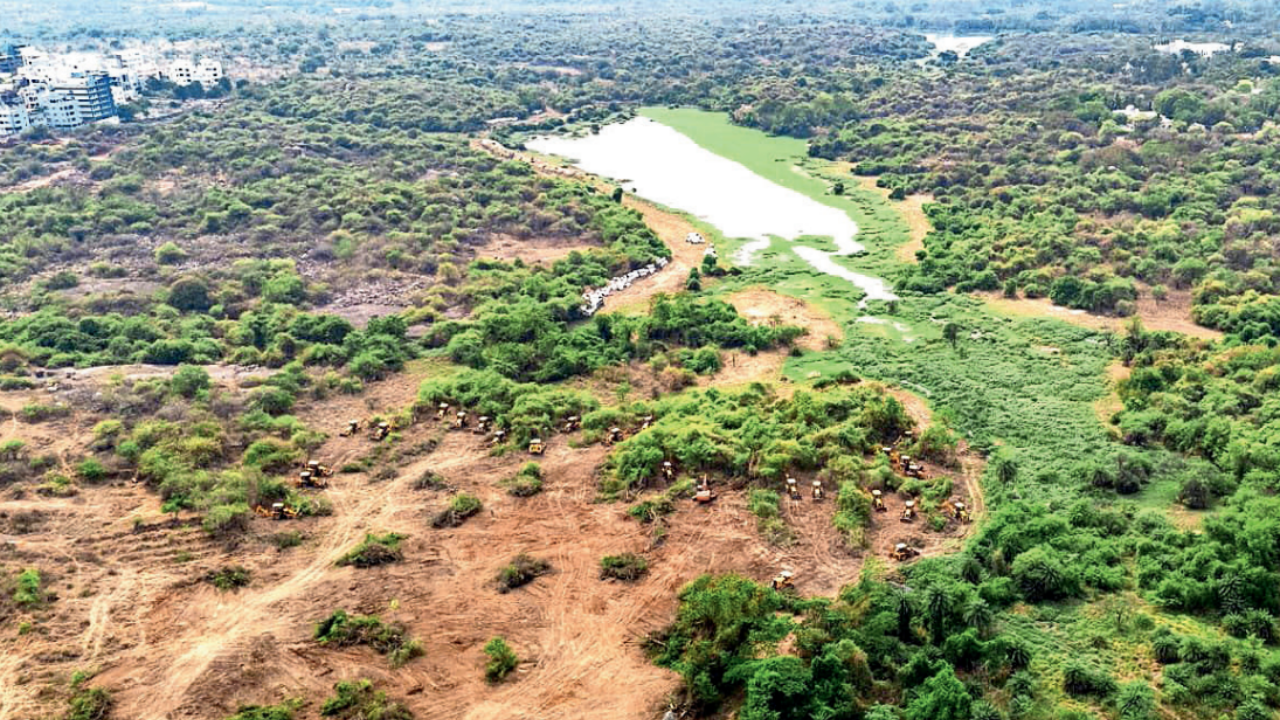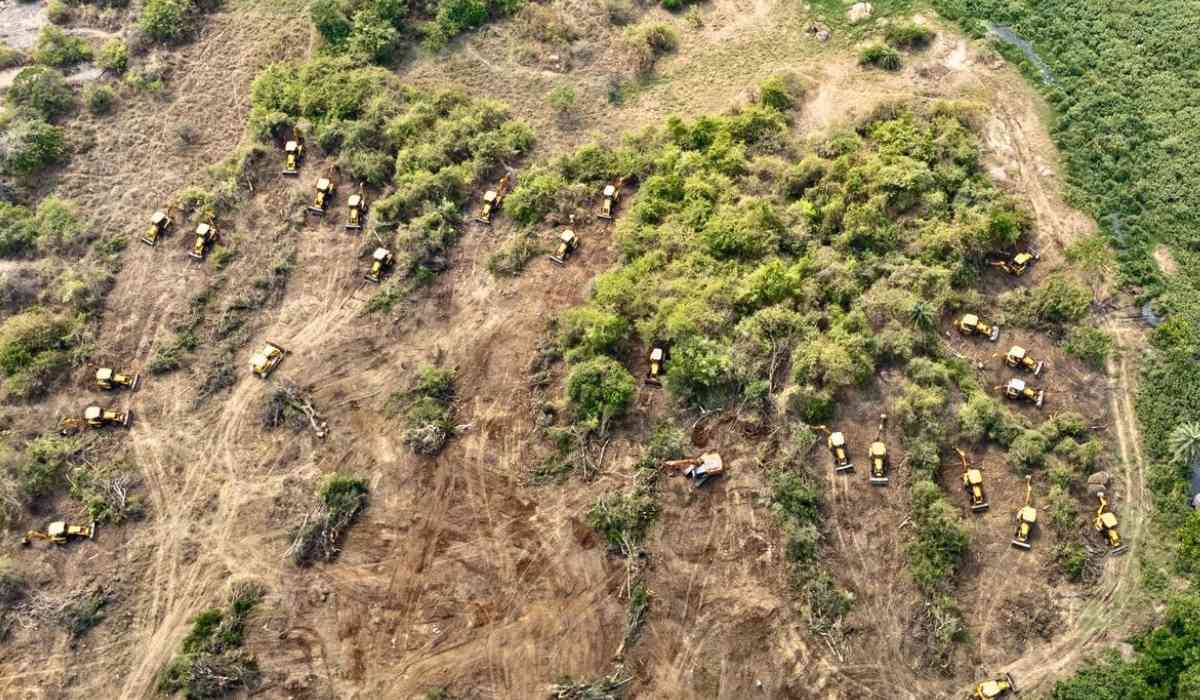In a significant development, the Telangana High Court has temporarily halted all work on a disputed 400-acre land near the Hyderabad Central University (HCU) in Kancha Gachibowli. This decision comes after public interest litigations (PILs) were filed by students of HCU and the Vata Foundation, an environmental NGO. The court's order aims to address the ongoing controversy surrounding the land's development for an IT park, which has sparked protests and debates over environmental concerns and land ownership.

Background of the Dispute
The dispute over the 400 acres of land in Kancha Gachibowli has been ongoing for decades. The Hyderabad Central University claims that this land is part of the 2,324 acres allocated to it in 1975. However, the Telangana High Court ruled in 2022 that there was no legal document proving the transfer of this land to the university. The Supreme Court later upheld this decision, confirming that the government owns the land.
Despite the legal rulings, students and environmental activists argue that the land is an ecologically sensitive zone, home to over 455 species of flora and fauna, including peacocks and buffalo lakes. They have been advocating for the land to be declared a national park under the Wildlife (Protection) Act.
Recent Developments
The situation escalated when the Telangana government began clearing the land for an IT park, leading to clashes between students and police. Bulldozers were deployed to flatten the ground, prompting protests and class boycotts by university students. The students' union has accused the university administration of facilitating the government's actions and has vowed to continue their resistance.
The Telangana government has defended its actions, stating that the land was not a forest area and that development projects are essential for the city's growth. Advocate General Sudershan Reddy argued that accepting the petitioners' demands would mean halting all development projects in Hyderabad, as many urban areas have wildlife presence.

The High Court's Decision
On April 2, the Telangana High Court intervened by ordering a temporary halt to all work on the disputed land until the next hearing. The court's decision was in response to the PILs filed by HCU students and the Vata Foundation, which highlighted the need for environmental assessments and compliance with Supreme Court guidelines on tree felling and wildlife conservation.
The petitioners argued that the Telangana Industrial Infrastructure Corporation (TGIIC) was violating Supreme Court orders by cutting trees without proper assessments. They emphasized that the land is home to diverse wildlife and requires protection.
Perspectives and Implications
The controversy surrounding the Kancha Gachibowli land reflects broader issues of development versus environmental conservation. On one hand, the Telangana government sees the land as crucial for Hyderabad's economic growth, particularly in the IT sector. On the other hand, students and environmentalists are concerned about the ecological impact of such development.
The High Court's decision to halt work temporarily provides a window for both sides to present their arguments and for a more nuanced discussion on balancing development with environmental protection. It also underscores the importance of following legal and environmental guidelines in such projects.
Political Dimensions
The dispute has also taken on political dimensions, with opposition parties like the Bharat Rashtra Samithi (BRS) criticizing the government's actions. The BRS has accused the government of "land grabbing," while the ruling party has defended its actions as necessary for development.

Conclusion
The halt on work at the disputed land near Hyderabad Central University is a significant development in a long-standing controversy. As the legal battle continues, it is essential for all stakeholders to engage in a constructive dialogue that considers both economic development and environmental sustainability. The outcome of this case will not only determine the fate of the 400 acres but also set a precedent for similar disputes in the future.
In the end, finding a balance between growth and conservation is crucial. This requires careful planning, adherence to environmental laws, and consideration of the long-term impacts on both the local ecosystem and the community. As the case unfolds, it will be interesting to see how the Telangana government and the High Court navigate these complex issues.
Key Points to Consider:
-
Legal Ownership: The Telangana High Court has ruled that the government owns the land, but students and environmentalists argue for its ecological significance.
-
Environmental Concerns: The land is home to diverse wildlife, prompting demands for it to be declared a national park.
-
Development Plans: The government plans to use the land for an IT park, which has sparked protests from students and environmentalists.
-
Political Tensions: The dispute has become politically charged, with opposition parties criticizing the government's actions.
What's Next?
-
The High Court will continue to hear the case, considering arguments from both sides.
-
The outcome will set a precedent for similar disputes in the future.
-
A balance between development and environmental protection must be achieved to satisfy all stakeholders.
With inputs from agencies
Image Source: Multiple agencies
© Copyright 2025. All Rights Reserved Powered by Vygr Media.





















